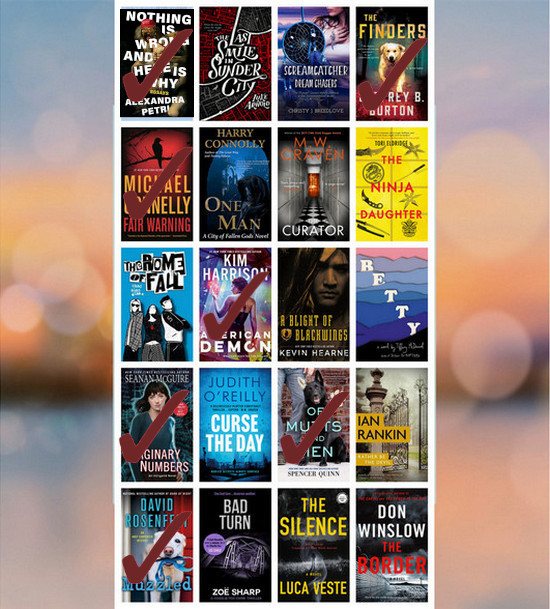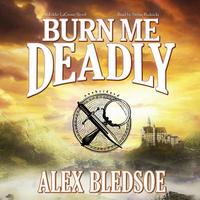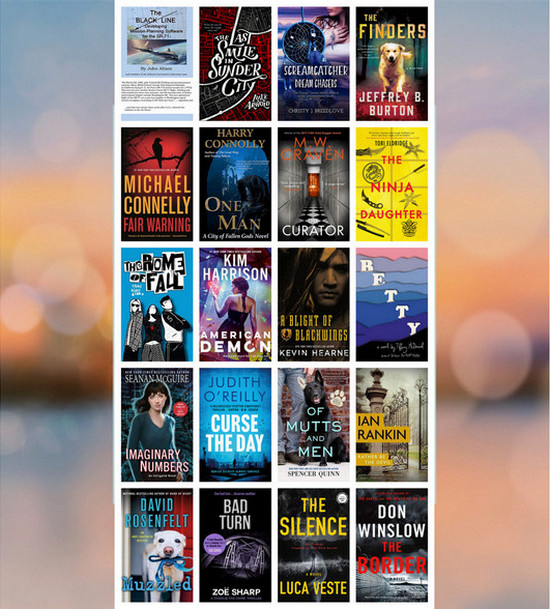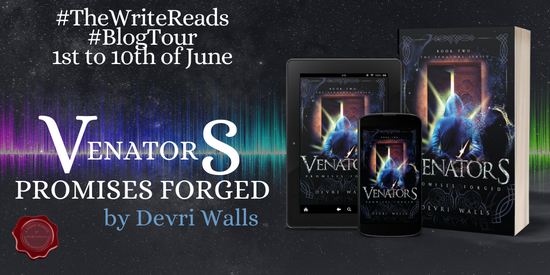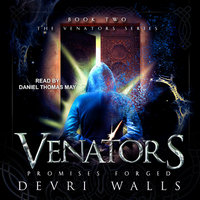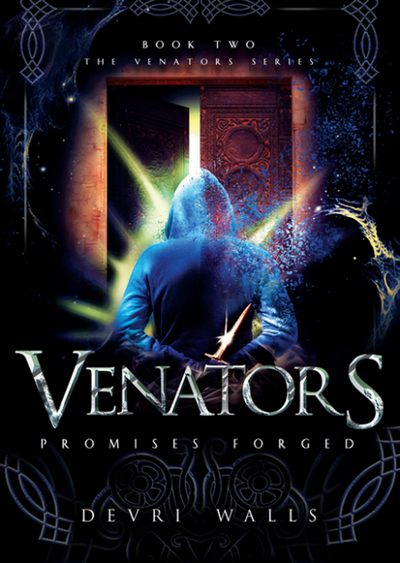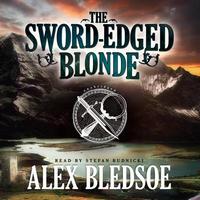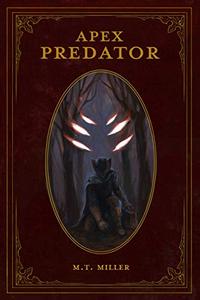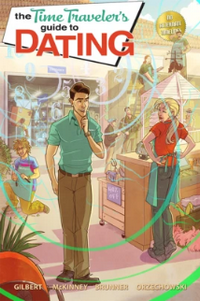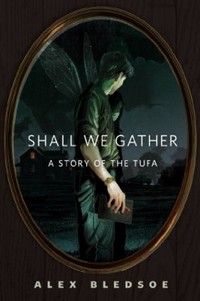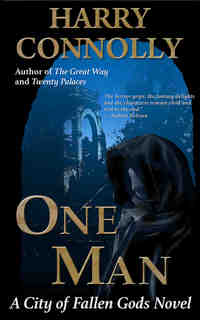 |
One Manby Harry Connolly Kindle Edition, 396 pg. Read: July 6-10, 2020 |

The death of a single child is like the end of the world.
I’d preordered this last year and somehow kept not reading it—largely between tours, pub dates, library due dates, and whatnot, it kept being pushed back. I don’t know if anyone ever reads the column to the right, but this has been listed “On Deck” for most of 2020. But finally, finally, I made some room in my schedule, and boy, am I glad I did. Even if that above line tells you just how dark things are going to get.
What’s One Man About??
On the day after the summer solstice in the year 403 of the New Calendar, Kyrionik ward-Safroy defe-Safroy admir-Safroy hold-Safroy attended his own funeral.
Sure, attending your own funeral is something that’s been done by a range of characters from Tom Sawyer to Percy Jackson, but that’s still a gripping opening line. Kyrionik is now calling himself Kyrioc, child of No One. He’s living in obscurity after a calamity struck an expedition he was on years before, leaving him assumed dead. Born to one of the city’s leading families, potentially destined to highest office, he’s now living in an impoverished neighborhood working (and living) in a pawnshop. He’s sort of befriended a little girl, Riliska, who lives in the same building as the pawnshop with her mother. He’s a quiet, obviously injured, loner that no one knows anything about. He’s called The Broken Man by his neighbors—and their assumption is pretty much right about that.
Riliska’s mother, Rulenya, is a mess. She’s bouncing from job to job, and man to man, unable (or unwilling) to keep either because she’s far more interested in feeding her addiction. She’s not that interested in being a mother and shows almost no interest in or affection for her daughter (who adores her mother, of course). Exhibit A is the fact that she calls Riliska (to her face!) The Long Hangover, “a headache she’s had for years.” Riliska’s a pickpocket and shoplifter, who sells what she steals to Kyrioc—who will frequently give her more than it’s worth so she can buy food.
Rulenya steals something from a high-ranking criminal during an exchange. After a day or two of searching, they find her, kidnapping both mother and child. Kyrioc goes off on a search for Riliska—and won’t let anything stand in his way. Criminals. Magical creatures. Gangs. Constables. Bureaucrats. More criminals. What no one realizes about the Broken Man is that he’s a world-class fighter, a one-man army, like John Wick or Jack Reacher with a magical secret. By the time they realize this, it’s too late for anyone.
What Rulenya, Kyrioc, and Riliska don’t realize (although Rulena has a little bit of a clue) is that her robbery is in the middle of a giant web of organized criminal activity, a power struggle amongst the gangs of the city, and a couple of overlapping investigations into that organized crime. The robbery sets off events that bring the city to the brink of a War between the gangs with the constables trying to pick them all off. Throw in the wild card of one nearly unstoppable man on a mission to save a little girl (although no one believes that’s what he’s up to)—and what will happen next is anybody’s guess.
It’s exciting, it’s thrilling, is impossible to predict—it’s very much not the kind of story you’re used to reading in a Fantasy setting. But it works. It works so, so well.
The Strengths of the Novel
The city of Koh-Salash is constructed within the bones of a dead god. Over the centuries, various layers of the city have been built, taking advantage of the bones—and the characteristics of some of them. I love this idea. I’d have loved it more if I hadn’t seen it in Michael R. Underwood’s Shield and Crocus in 2014. I’m also pretty sure that I’ve seen a reference to at least one other fantasy novel using the same kind of city. This is not a rhetorical question: is this a Fantasy trope that I’ve missed? Are there dozens of books out there with this kind of setting and I’ve only run into two (and a possible reference to a third)? Both Underwood and Connolly used the god skeletons differently and creatively (I’d argue Connolly took more advantage of it)—so I’m not complaining in any sense about this. It just struck me as strange that two widely different works had similar settings.*
* Oddly enough, both had a very contemporary-style story set in a Fantasy world.
The city is just part of the fantastic world-building (no pun intended). There’s an epic history of the world, a geopolitical structure, and a rich magic system at work. Connolly keeps most of that to himself, only giving the reader enough to understand what’s going on in this story, with the occasional tease to make you want to know more. Even the little bit of slang that you pick up is pretty creative, I was so glad to see that Connolly had made the effort to do that.
Make no mistake—this is a dark novel. There’s one character who can largely function as comic relief—and a few lighter moments, some hints of hope. But by and large, this is a man on a suicide mission, not sure he’ll accomplish his goal, but who is sure he’ll take a lot of people down with him. Of those he faces, some just know they’ll die because of their lifestyle—that someone will “take the point” to them—some are resigned to a hopeless life, and some who look forward to death because it will release them from the choices they’ve made. All in all, you’re not going to find optimists in Koh-Salash.
This has one of the best and most consistently interesting casts of characters that I’ve read this year—I started to say that I only really got invested in two, maybe three, characters (Kyrioc, Riliska, and maybe Kyrioc’s younger brother). But as I thought about it some more, I realized that wasn’t true—maybe I was more invested in them, but there are several others that I cared about—and there’s a looming threat to the city as a whole that bothered me more than I’d think it would after so brief a time. Connolly’s provided really well-rounded and developed characters—broken, fallible, smart—but not smart enough that they can’t make a mistake—with wildly divergent (and frequently contradictory) interests and desires. In fact, if we get other City of Fallen Gods novels, I have a list of characters I’d like him to focus on.
A Caveat or Two
There were a couple of things I couldn’t quite get excited about. Both of whom are very possibly just me. First of all, are the character names—some are just garden-variety Fantasy names, but others were just obnoxious (the name in the quotation above is a mild example of this). There seemed to be a well-thought-out naming convention based on social class and family—but I just had the hardest time connecting names with characters for the longest time, and spent a lot of time flipping back in the text to decide who the name was associated with. Yes, I eventually became acclimatized, but simpler (and more pronounceable) names would’ve helped.
The second was the pacing—I think this one is very likely all about my energy level as I read this, and is probably actually well-done. So this isn’t a critique, it’s a “know what you’re getting into.” Connolly spends so much time setting up his dominoes that I grew impatient. The story is really so intricate, with so many moving parts, that after a very strong opening, things slow down so he can make sure the reader gets the full lay of the land. It was all really interesting, and well worth the effort, but I felt like I was wading through molasses. That said, once the dominoes started falling? All that went out the window, everything had been so well set up that I had no trouble following it all and remained on the edge of my seat.
So what did I think about One Man?
They were in a little storeroom or front office, with a counter and shelves full of wooden dolls with skull- like faces and outstretched arms, as though the tiny figure of Death was asking for a hug.
In Kyrioc’s experience, when death came, it was often very, very small: A breaking stair, the vapor from a cough, the edge of a knife like the one he was holding. A tiny figure was exactly the right size for Death, as far as he was concerned.
It’s simplistic to say this, but One Man feels like Connolly took the strengths of his Epic Fantasy novels and the strengths of his Urban Fantasy novels and combined them into this novel. That’s more accurate than it should be, and it’s good enough for my purposes here. There’s a rich world, well-conceived and well-realized here. The characters are so strong, so well done. And a story that we’re all familiar enough with but told in a way that’s fresh enough that you can appreciate both the way it’s familiar and surprising. There’s really little to complain about and much to commend about One Man. It’s set up in such a way that Connolly could come back to the city if he wants, or he can leave it as a very satisfying stand-alone. Either way, I strongly recommend this to your attention.

This post contains an affiliate link. If you purchase from it, I will get a small commission at no additional cost to you. As always, opinions are my own.
![]()



